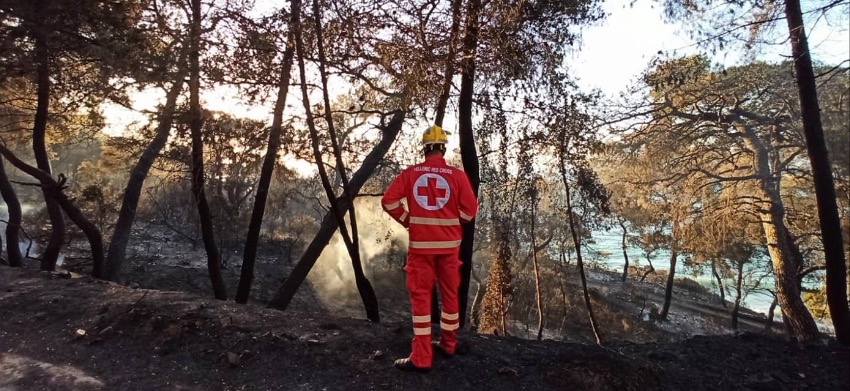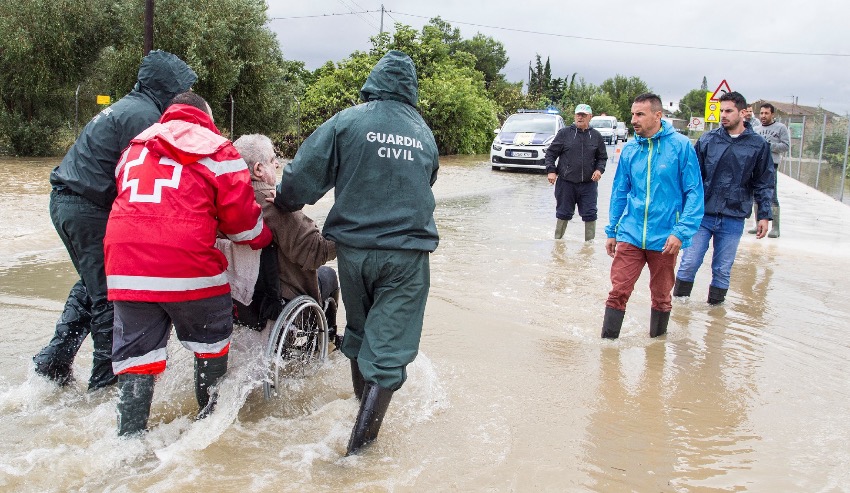Pandemic drives EU preparedness efforts
Last year, the EU’s crisis management system was tested like never before. With over one hundred – and counting – requests for assistance solely related to COVID-19 since March 2020, the pandemic has shown the system’s limitations when several EU Member States are affected by a crisis simultaneously. This led to the European Council’s Joint Statement and the European Parliament’s resolution inviting the European Commission to propose a more ambitious and wide-ranging crisis management system to ensure better response preparedness to large-scale emergencies within the Union.
Following the Commission’s proposal to amend the Union Civil Protection Mechanism (UCPM) legislation, Member States and the European Parliament entered negotiations. Agreement was reached in February 2021 and the newly adopted legislation entered into force on 26 May. This is already the second time that the legislation goes through major changes in recent years, with a previous revision adopted in 2019.
The latest changes reflect the growing political importance of the EU’s civil protection agenda. The Commission’s mandate is expanding, with more operational capacities and flexibility to use funds in urgent and unexpected situations. This is accompanied by a fivefold increase in financial resources for civil protection.
Several important areas of focus for disaster risk management in UCPM countries will offer opportunities for key stakeholders, including National Red Cross and Red Crescent Societies, to contribute to strengthening the system at the regional, sub-regional and domestic levels – civil protection being a state competence.

Importantly, climate change impacts are now recognised throughout the amended regulation. Scaling up climate action will be critical to managing the increasing risks of heat, extreme rainfall, droughts, and wildfires. In addition, the efforts made to improve knowledge of disaster losses are much needed, as disaster risk cannot be managed without measuring losses. Finally, the establishment of new EU-wide disaster resilience goals will have the potential to break ground. Even though non-binding, the goals can be useful in shifting emphasis from asset-focussed response preparedness towards reducing disaster risks.
The Emergency Response Coordination Centre (ERCC) at the European Commission’s Directorate General for Civil Protection and Humanitarian Aid Operations (ECHO) will now be working more with Member States on common situational awareness and analysis, providing advice based on scientific knowledge. It will also promote a cross-sectoral approach to disaster management – highly needed for the complexity of future crisis scenarios. In this context, National Red Cross Societies also increasingly contribute to their respective national systems with their information management structures and Emergency Operation Centres. The International Federation of Red Cross and Red Crescent Societies (IFRC) supports them at the regional and global level and develops its collaboration with the ERCC.
Furthering forecast capabilities and increasing collaboration among different actors could lead to preventing or mitigation hazards from turning into disasters. The regulation’s stronger language on the development of early warning systems is thus very welcome. However, anticipatory and early action – fast advancing outside of the EU and promoted by ECHO’s humanitarian side – is not yet mentioned in the legislation.
The future is sure to bring a variety of transboundary risks and emergencies. One of the lessons learned from cross-border collaboration in the COVID-19 context, is that legal preparedness needs more attention. More should be done to reduce the legal barriers that hamper effective joint efforts among neighbouring countries. In this regard, the IFRC’s Checklist on Law and Disaster Preparedness and Response provides recommendations for states to revise and strengthen laws and policies for climate, disaster risk management, and emergency preparedness and response.

The EU’s growing ambitions around civil protection are not limited to UCPM countries. With the new legislation in place, the EU flag is expected to be visible in more emergencies. European solidarity will be expressed around the globe by deploying assets and experts from the Union’s Civil Protection Pool or from rescEU – the new European reserve of capacities to respond to forest fires, medical emergencies, or chemical, biological, radiological and nuclear incidents. The Commission intents to use civil protection resources more in humanitarian responses and to find synergies between humanitarian aid and civil protection. Its pursuit of an increasingly operational role outside the EU, as opposed to working solely through humanitarian partners on the ground, must be carefully considered to not compromise principled humanitarian action.
The new legislation also foresees an expanded mandate for ECHO to procure rescEU capacities in specific cases of urgency, especially to address gaps in transport and logistics. Previously, these capacities were only acquired, rented, or leased by UCPM participating states. This presents a major opportunity to add value to the EU’s disaster risk management system, filling gaps and developing capacities that EU Member States or humanitarian actors lack.
Continued efforts to strengthen the European emergency response system are very welcome. Through their auxiliary role, National Red Cross and Red Crescent Societies in UCPM countries are well positioned to support their authorities in making progress nationally. Based on their operational experience, they can help to review and develop legislation, policies, and plans to make the disaster risk management system more effective.
All European actors must scale up their cross-sectoral, cross-border and cross-regional collaboration, with the aim of carrying out shared multi-risk assessments and analyses. It will be necessary for the EU to take decisive action to fade silos and increase cooperation between the civil protection community and climate change, disaster risk reduction, research and other relevant actors to shape the future together. Working better together to understand, anticipate, and manage risks, and to build a more effective coordinated response, will contribute to a more resilient future.
For media inquiries, please contact Eva Oyón on: eva.oyon@redcross.eu or +32 2 235 09 22

